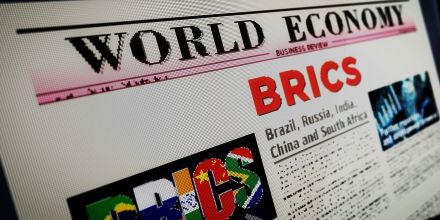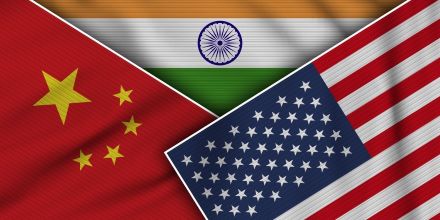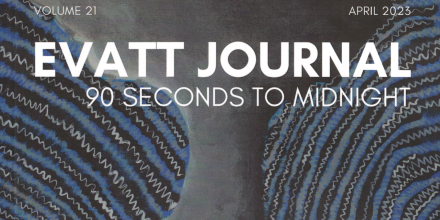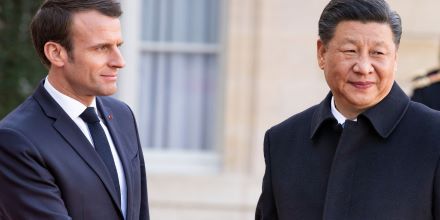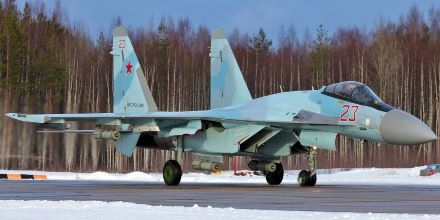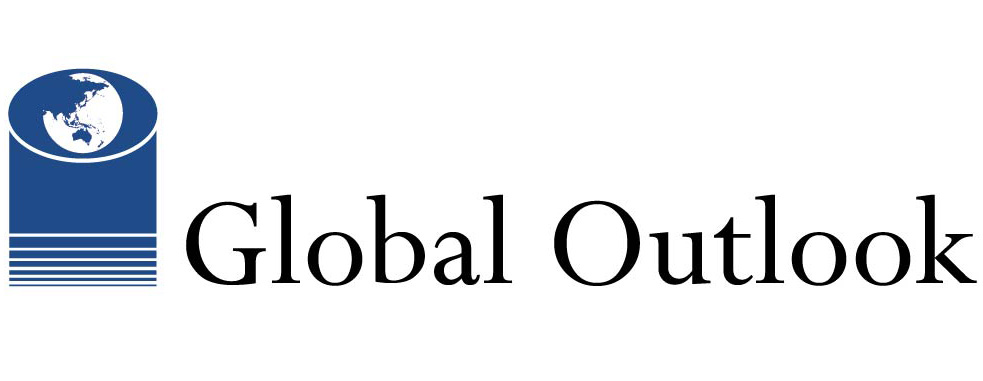
Curated expert opinion on intractable contemporary issues
Global Outlook: Cooperative Security, Arms Control and Disarmament
Additional BRICS for an Expansion of the House
By Herbert Wulf | 18 June, 2023
How to deal with China? The Western industrialised countries have been trying for some time to find a convincing China strategy. The seven major economic powers that make up the G7 agree that it is not a matter of de-coupling economically from China, but of avoiding risks and reducing dependencies. This strategy is now referred to by the catchy Anglo-Saxon term "de-risking".
U.S. Allies Look For Their Place In The Emerging Global Order
By Ramesh Thakur | 08 June, 2023
America and the West are more isolated from the rest of the world than at any time since WWII.
Four Nuclear Myths
By Ramesh Thakur | 06 June, 2023
The Dr. H.V. Evatt Foundation publishes the Evatt Journal. Volume 21, published in April, was a special issue on ‘90 Seconds to Midnight’, referencing the famous Doomsday Clock from the Bulletin of the Atomic Scientists, edited by Casey Thompson and Huw Phillips. The Toda Peace Institute’s Senior Research Fellow, Professor Ramesh Thakur, who contributed a chapter, was a panellist at the launch of the journal in Canberra on Thursday 1 June. This is the text of his initial remarks.
Could The US And China Become Partners For Peace In Ukraine?
By John Marks | 29 May, 2023
if the US and China were to set aside their national egos and stop playing power politics, together they might be able to take a giant step toward saving tens of thousands of lives and preventing further destruction of Ukraine.
China-Strategy: Transatlantic and European Cacophony
By Herbert Wulf | 23 April, 2023
The G7 summit of foreign ministers in Japan in mid-April sought to emphasise the need for a unified China policy. However, the diplomatic pronouncements can only gloss over the internal contradictions, but not eliminate them.
Russia And China Are Edging Out The US In The Middle East
By Amin Saikal | 19 April, 2023
The strategic landscape of the Middle East is changing rapidly, but not in favour of the United States as the traditional powerful actor in the region. Continued adversarial US–Iranian relations and regional Arab states’ growing concerns about Washington’s reliability as an ally have widened the arena for Russia and China to expand their strategic footprints in the region.
The views and opinions expressed in Global Outlook are those of the authors and do not necessarily reflect the official policy or position of Toda Peace Institute.
Additional BRICS for an Expansion of the House
By Herbert Wulf | 18 June, 2023
How to deal with China? The Western industrialised countries have been trying for some time to find a convincing China strategy. The seven major economic powers that make up the G7 agree that it is not a matter of de-coupling economically from China, but of avoiding risks and reducing dependencies. This strategy is now referred to by the catchy Anglo-Saxon term "de-risking".
U.S. Allies Look For Their Place In The Emerging Global Order
By Ramesh Thakur | 08 June, 2023
America and the West are more isolated from the rest of the world than at any time since WWII.
Four Nuclear Myths
By Ramesh Thakur | 06 June, 2023
The Dr. H.V. Evatt Foundation publishes the Evatt Journal. Volume 21, published in April, was a special issue on ‘90 Seconds to Midnight’, referencing the famous Doomsday Clock from the Bulletin of the Atomic Scientists, edited by Casey Thompson and Huw Phillips. The Toda Peace Institute’s Senior Research Fellow, Professor Ramesh Thakur, who contributed a chapter, was a panellist at the launch of the journal in Canberra on Thursday 1 June. This is the text of his initial remarks.
Could The US And China Become Partners For Peace In Ukraine?
By John Marks | 29 May, 2023
if the US and China were to set aside their national egos and stop playing power politics, together they might be able to take a giant step toward saving tens of thousands of lives and preventing further destruction of Ukraine.
China-Strategy: Transatlantic and European Cacophony
By Herbert Wulf | 23 April, 2023
The G7 summit of foreign ministers in Japan in mid-April sought to emphasise the need for a unified China policy. However, the diplomatic pronouncements can only gloss over the internal contradictions, but not eliminate them.
Russia And China Are Edging Out The US In The Middle East
By Amin Saikal | 19 April, 2023
The strategic landscape of the Middle East is changing rapidly, but not in favour of the United States as the traditional powerful actor in the region. Continued adversarial US–Iranian relations and regional Arab states’ growing concerns about Washington’s reliability as an ally have widened the arena for Russia and China to expand their strategic footprints in the region.
The views and opinions expressed in Global Outlook are those of the authors and do not necessarily reflect the official policy or position of Toda Peace Institute.
